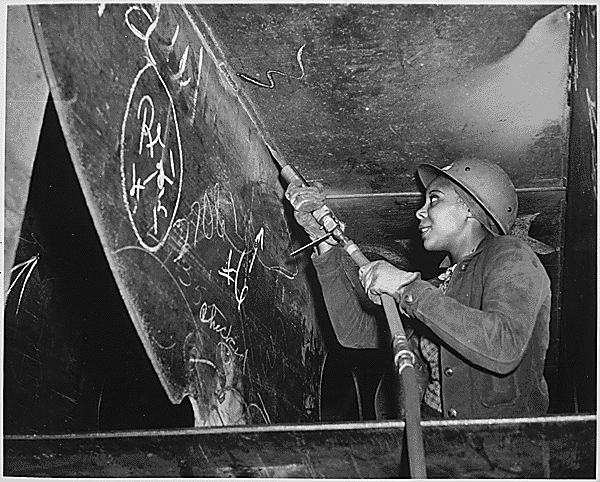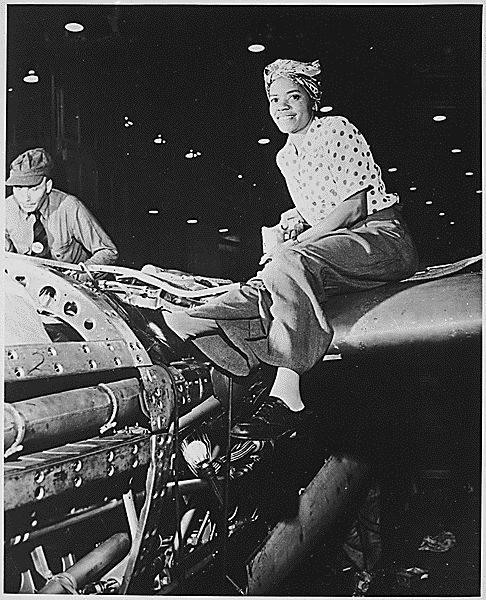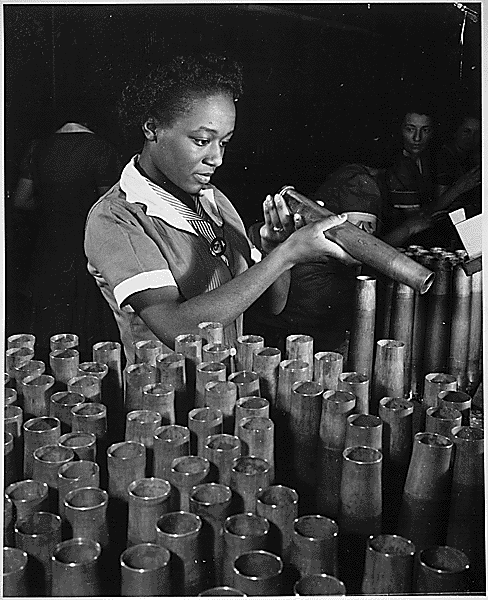
The women who would later be characterized by the symbol of "Rosie the Riveter" are poised to receive Congress' highest award Congress passed a bill that now heads to the president's desk.
H.R. 1773 awards the Congressional Gold Medal collectively to "the women in the United States who joined the workforce during World War II, providing the aircraft, vehicles, weaponry, ammunition and other material to win the war, that were referred to as 'Rosie the Riveter' in recognition of their contributions to the United States and the inspiration they have provided to ensuing generations."
The medal is the "highest expression of national appreciation for distinguished achievements and contributions" of an individual, institution or event that Congress can award, according to the history of the award.
The Senate voted to pass the measure on Nov. 12, one day after Veterans Day.
Rep. Jackie Speier, D-California, and co-chair of the Democratic Women's Caucus introduced the bill almost exactly a year ago.
“During one of the most challenging chapters of American history, our real-life Rosie the Riveters were beacons of hope and patriotism,” Speier said in a statement Thursday. “Their ‘We Can Do It’ spirit inspired a nation grappling with the hardships of war to rise to the challenge, supercharge the war effort, and achieve victory. I’ve had the honor of working alongside real life Rosies like Phyllis Gould, a driving force behind the efforts to gain national recognition for all the Rosies, her sister Marion Sousa, an official volunteer at the Rosie the Riveter WWII Home Front National Historical Park in Richmond, Rosie the Riveter Park Ranger Betty Reid Soskin, the oldest active ranger in the National Park Service, and Mae Krier, a fearless Rosie advocate who stepped up during the ongoing pandemic to make Rosie-themed masks. I’m thrilled that the Senate has joined the House in passing legislation to finally honor our Rosie the Riveters for their courage, sacrifice, and immense contributions to our nation just like our other World War II heroes.”

More than 6 million women answered a call to action 70 years ago to fill a demand for workers left by the men who left to fight, keeping the country going through the war and after.
"These women left their homes to work or volunteer full-time in factories, farms, shipyards, airplane factories, banks and other institutions in support of the military overseas," the bill reads. "They worked with the United Service Organizations and the American Red Cross, drove trucks, riveted airplane parts, collected critical materials, rolled bandages and served on rationing boards."
Those women "are among the greatest living heroines in the United States" and "persevered, despite often facing harassment from their male colleagues and disapproval from their male families members, all while continuing to maintain their 'other jobs' as caretakers of children and their households," the bill reads.
Women of color also "overcame long-held policies of discrimination and made significant contributions to the war effort."
The bill defines "Rosie the Riveter" as any woman who "held employment or volunteered in support of the war efforts during World War II."

A single gold medal will be created and given to the National Museum of American History, where it will be available for display or at other locations, as appropriate, though the bill also allows duplicate medals to be created.
